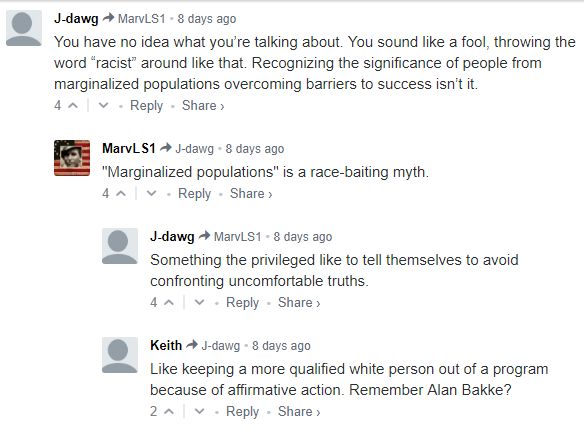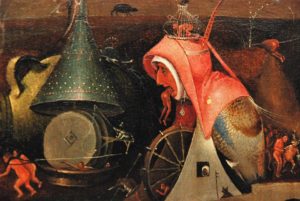“The point of civilization is to be civilized; the purpose of action is to perpetuate society, for only in society can philosophy truly take place.”
– Iain Pears, from The Dream of Scipio
As a German-American raised in Minnesota after the fall of the Berlin Wall and the collapse of the Soviet Union, my relationship to the Cold War, to a divided Germany, and to the war that led to it, was very tangential: It was talked about only in abstracts, framed in black-and-white photos, running together with all the other great and important and terrible events in history for which – I was taught – there is no room in the world today.
It wasn’t never discussed in “Remember when…” terms, because it was before, what seemed like a long, long time before, my time.
Grandparents who had lived through it, one set in the United States, and one set in Germany, were my only true connection to this time in American history. But Germany has treated history very differently than we have here: It’s 2017 now, and long has America ignored its responsibility to the past. We have parades, yes, where we wave flags and sing songs of patriotism. And we have museums. Museums dedicated to the past and everything that the country was/is built upon so we can look at them, nod our heads in deep understanding, and then leave it all behind.
We have the History Center here in Minnesota. There’s the National Museum of African American History and Culture in D.C., which only opened in 2003. And we have monuments, which some people have trouble differentiating from the museums; the differences between knowing/understanding/remembering, and exalting.
We do what we can to appreciate our past, but, as a society, when it’s something easy: Remember Pearl Harbor and 9/11. But other events, the skeletons, the terrible things, are quickly glossed over, explained away, buried.
Our (tangential) connection to slavery, the Holocaust, horror
Strong coffee steams on the table. It’s bitter and dark. The table itself is made of wood, hand-hewed and sanded by an American craftsman from further north. I sit here, reading Elie Wiesel’s Night. On the table is Earnest J. Gaines’ A Gathering of Old Men.
As an American with dual citizenship, being of two place was something to be celebrated. Show off to friends and strangers, laugh about moving to Germany if things ever got bad here or vice versa. It was a joke, one that never needed any root in actuality.
Growing up we ate the food of both countries, and just about every other country as well. My mother was an avid culinary explorer embracing America’s unique role as a melting pot. But always German-style muesli, Abendbrot, pickled herring, cakes and cookies made in grandma’s devotedly German kitchen (we had those cakes and cookies with tea on Sundays). Then we had Indian curry on Monday, and Ethiopian wot and chicken tibs on Tuesday, stir fry with rice on Wednesday: It was perhaps because of this transatlantic heritage that the rest of the world felt also close, and also necessary to taste.
German was spoken, 50/50, with English in our household.
It was everything: appreciated, enjoyed, learned, remembered. Today. In my time. And there, sitting in chairs around dinner table, on couches in the living room, on porches of long summer nights, we would discuss the past, and history, as if it were another country waiting for, deserving of, exploration.
In Germany, you would never name your child Adolf. You don’t joke about the Holocaust or the Third Reich (there’s nothing funny). The scars from that time are real and still feel very fresh. Though with each passing year slightly less so: The teenagers not quite as reverent as their parents, grandparents, great-grandparents. That is why culture and society has stepped in to make sure that the reverence is not lost, the terrible history not forgotten (and therefore not repeated), and that respect is maintained for what happened and for those who suffered.
But in the United States we struggle with our history. So long have we called ourselves victors and world’s saviors that the idea we did something wrong is hard to stomach. It clashes with our “white horse” mentalities. But we have a lot to apologize for, with far too many people unwilling to apologize, even acknowledge. It’s very different in Germany regarding the Holocaust, more. It’s an embarrassment, a stain on an otherwise proud people.
“The question shouldn’t be ‘Why are you, a Christian, here in a death camp, condemned for trying to save Jews?’ The real question is ‘Why aren’t all the Christians here?’” – Joel C. Rosenberg, The Auschwitz Escape
Slavery, in this country, the Japanese internment camps and the atomic bombs dropped on Japan, the displacement and slaughter of Native American peoples, Jim Crow… these are things to be explained away. A point of indignation, even: “It wasn’t my fault” and “I wasn’t there” and “It’s not real or relevant anymore, so why should we still talk about it?”

The difference, to be noted if it wasn’t made clear before, is that in Germany, remembrances are dedicated to respecting, honoring. In America, there are protests against pulling down monuments dedicated to the opposite; rallies against the ridding of statues erected only as a testament to prejudice and hate, and secession from the United States. Knowing and understanding history, and putting it on a pedestal are two very different things: There are no statues in Germany of Hitler, and no one is fighting to keep his memory, or the memory of what he stood for, alive.
The difference, if nothing else, exemplifies the distinction between moving forward because history has been understood and digested, and staying stuck in the past because we are still trying to figure it out.
In the U.S. we are still trying to figure it out.
We are constantly eating ourselves; razing our history to build anew. Because even history (things that have already happened, full stop) is not set in stone, rather in the perceptions of everyone/anyone who remembers it.
We Are Spectacular!
Granmom always said she grew up during the best time in history. Things were peaceful in her time, she said, and they were nice. “We could walk to the store day or night,” she told me, “and not worry about a thing.” She said this with her hands. She smiled at me and her eyes would wrinkle at the corners. “We knew each other, we helped each other, we loved each other.”
I was inclined to agree.
She lived through America’s Great Depression, on a small family farm in rural Iowa between rabbits and hay fields and trees. Robots weren’t real yet. This world wasn’t real yet and couldn’t be imagined. Progress was not yet a dirty word. Things were dusty. They grew their own food.
It wasn’t until I was older that I learned that in her time the Nazis were killing people by the million across the ocean, and so many people in America were oppressed for being something other. It was peaceful for some. Only for some. But this is not something you tell an old woman…
Granpop, as a boy in Germany, watched a train black as night pass one day on the tracks near his home. He was out walking with his father (my great-grandfather) as the train passed and a thousand ghostly, pale, and pleading faces looked back at him through barred windows. Heading to Sachsenhausen, and the end. He asked his father what it was, who they were, where they were going, but my great-grandfather only squeezed his hand, told him to be quiet, said, “My son, don’t ask so many questions.”
With dead eyes. Many people are remembered that way.
His whole life they never stopped visiting him at night. Even after he moved to Stuttgart, where he met and married granmom (who still believed in the goodness of people), he would still see sunken cheeks and the eyes of his father.
It all seems so far away now, a world of history books and documentary films. What we learn about in school. Something that we can feel but not real enough to touch. I wondered, while sitting in my high school history class, how much pain one world can swallow before she becomes sick and just spits us back out.
I stand now at the window of my apartment (at the Armburg Flats) as the daylight dims and turns to dusk. A woman runs her hand through her long hair dark on the wall across the street, an advertisement for youth and beauty watching me from the side of an office building. She is beautiful and dark, the way Millie was.
Granpop didn’t say much to me, especially later in life, but what he wanted to say he said with his eyes. The woman in the advertisement looks back at me with eyes that are darker than his and her face is clean. His face was like the clock on City Hall telling me how quickly time passes. I try to pay attention to these moments, register each one so that they don’t slip past me unnoticed. Moments feel and sound and smell different each day, but they all taste the same.
I met Millie in school, in history class where the teacher stood in front teaching the things he thought were important, while the girls sat in the back reading great novels by dead authors, and the boys gathered around, learning just enough to impress the girls…
I always thought there was so much time. Time for everyone, and time to waste. I could sleep all day and it wouldn’t matter. I could get drunk and nothing would change. Tomorrow was always there, and so far away. There was no need to worry about it today. And then both were gone.
We dream. We don’t look at the spaces between us.
Pop died today, at his home in the old neighborhood. I’m at the Armburg Flats, staring out of the window. I am alone here, and I will stay that way until the end. The woman watches me from the advertisement on the wall and I look at her face and her lips and her mouth, opened partway.
The street shimmers in the sunset haze. People are out on the street looking for a good time, dressed in ways that beg to reflect any bit of light they can find. They have none themselves.
Painting in the header photo: The Last Judgment, by Hieronymus Bosch



